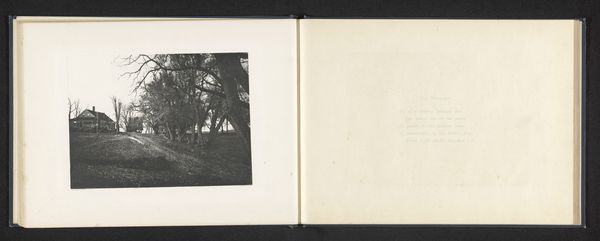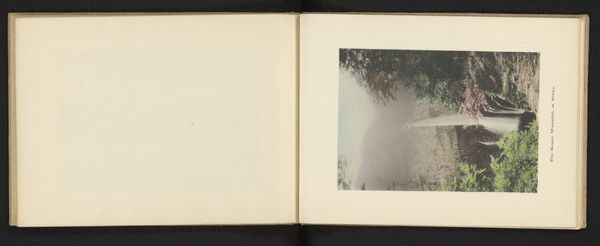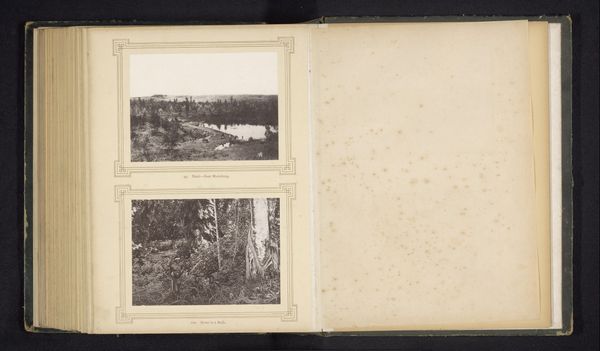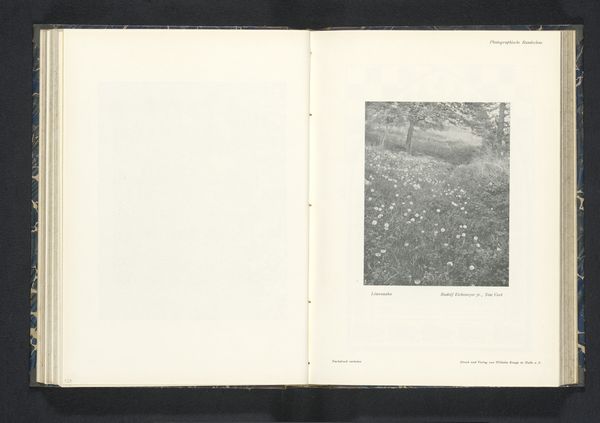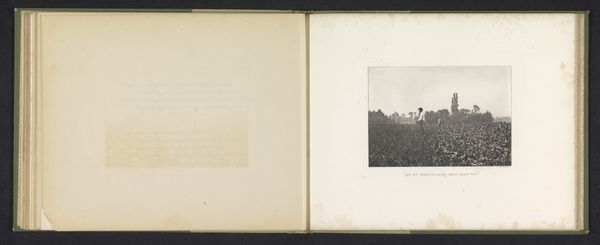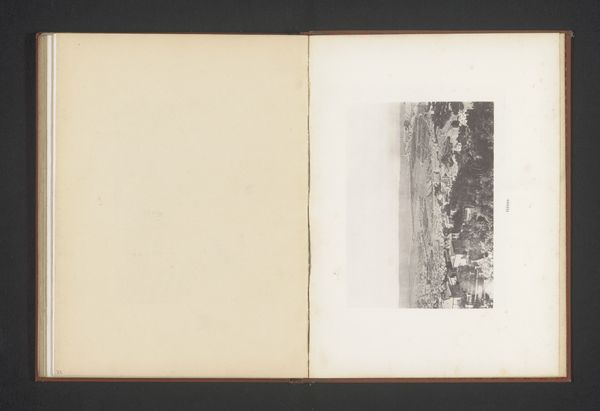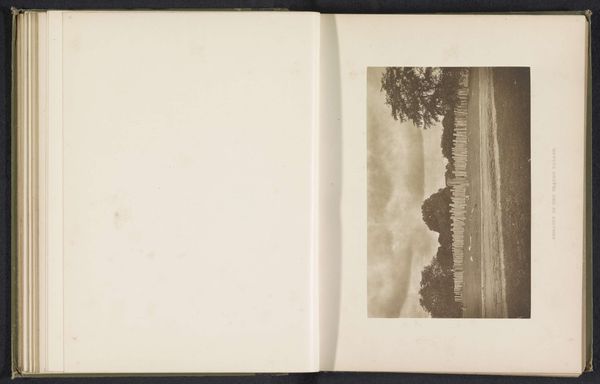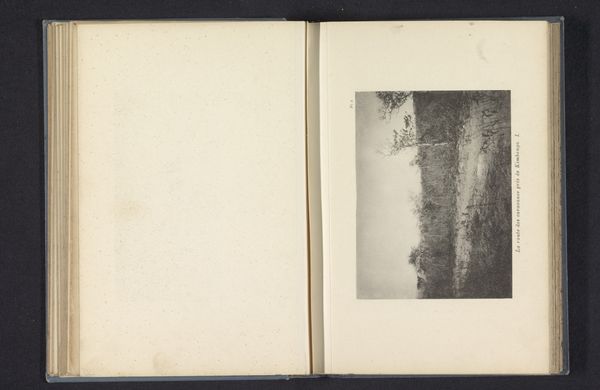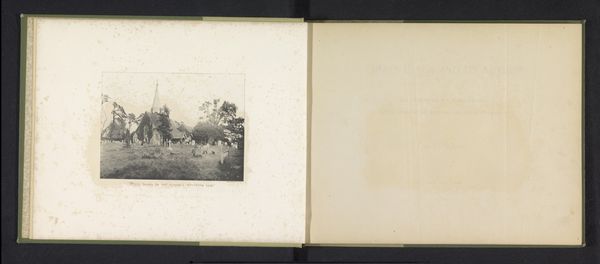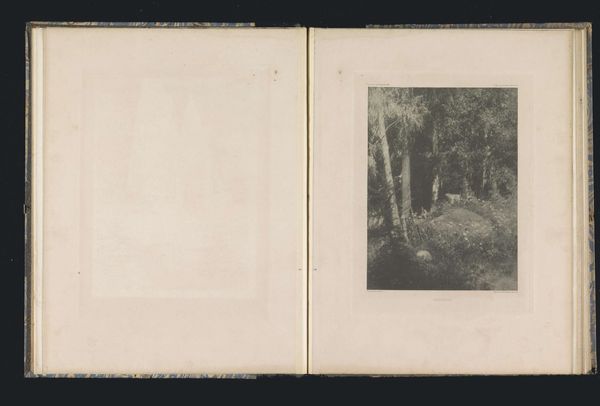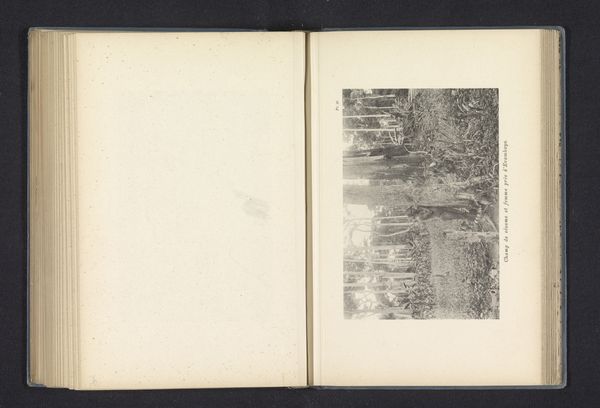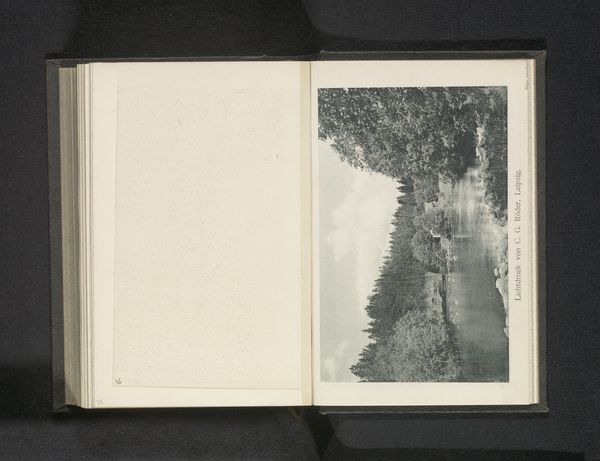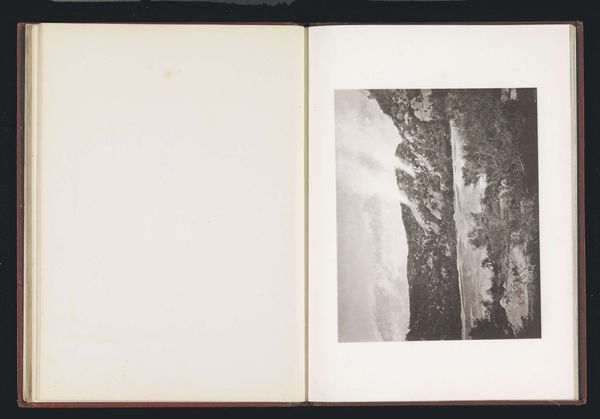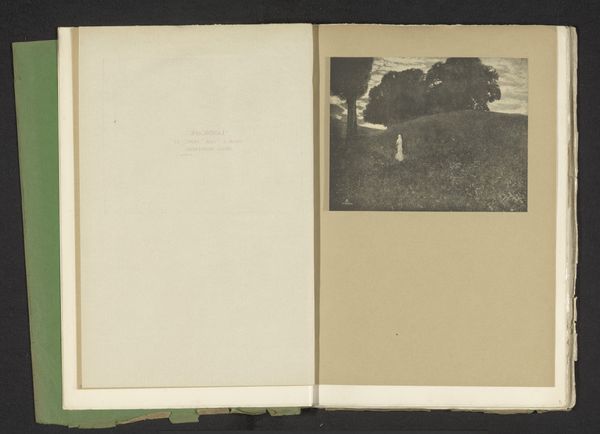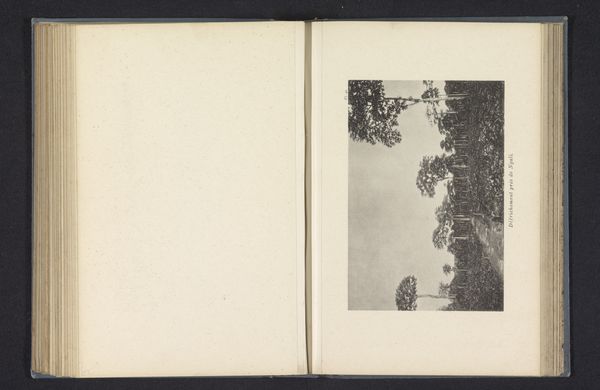
photography
#
still-life-photography
#
water colours
#
landscape
#
photography
#
coloured pencil
#
realism
Dimensions: height 240 mm, width 190 mm
Copyright: Rijks Museum: Open Domain
Curator: Looking at this, I see a memory preserved, a slice of time gently pinned onto the album page. What strikes you most, Editor? Editor: Immediately, a sense of quiet observation, almost muted. The color palette is subdued, a nostalgic filter perhaps. Curator: Indeed. We're looking at a page from a photo album featuring landscape shots by Willem Jacob van den Berg, titled "Bauhinia's in Shewasaulu, Zuid-Afrika" taken in 1967. Van den Berg’s work often touches on the natural world. What is the affect? Editor: The choice of putting it into an album makes the piece more about framing perspective and access than just the land alone, which of course opens conversations about colonisation, specifically through documentation and possession... Curator: I agree completely. Albums themselves were potent colonial tools. And beyond the obvious, landscape imagery has consistently worked as a representation of something bigger. To have three square nature snaps held inside the worn covers is representative of an institutional gaze. Editor: Absolutely. Also the contrast. This is the land in its raw beauty and vibrancy, pressed into these little squares – neat, contained, and owned. There's almost an anthropological feeling, a way of presenting "the other" even though it seems so harmless on the surface. Curator: Furthermore, how is that perspective re-framed by modern institutions when an album page can enter gallery settings decades after their original intention. What political readings and contexts change in its re-circulation? Editor: The way this collection might prompt these considerations around access, otherness and, by extension, agency. If the lens is always pointed at "it", there needs to be more questions on the position and intention of "I". I see so much here; it's deceptive because of its simplicity. Curator: I am left reflecting on this humble format, capable of eliciting such a large critical interrogation into modes of seeing, possession and colonial attitudes. It's always more than meets the eye. Editor: A poignant reflection on perspective, perfectly articulated.
Comments
No comments
Be the first to comment and join the conversation on the ultimate creative platform.
